Balance for better
The theme for this year’s International Women’s Day – which calls for collective action and shared responsibility for driving a gender-balanced world – is #BalanceforBetter.
From our first ever Assistant Vice-Principal in Diversity, Ruth Woodfield, to researchers working across disciplines on issues of gender, we asked colleagues across the University to strike the 2019 International Women’s Day pose and to tell us what ‘balance’ means to them.
Rona Ramsay
Reader in Biochemistry
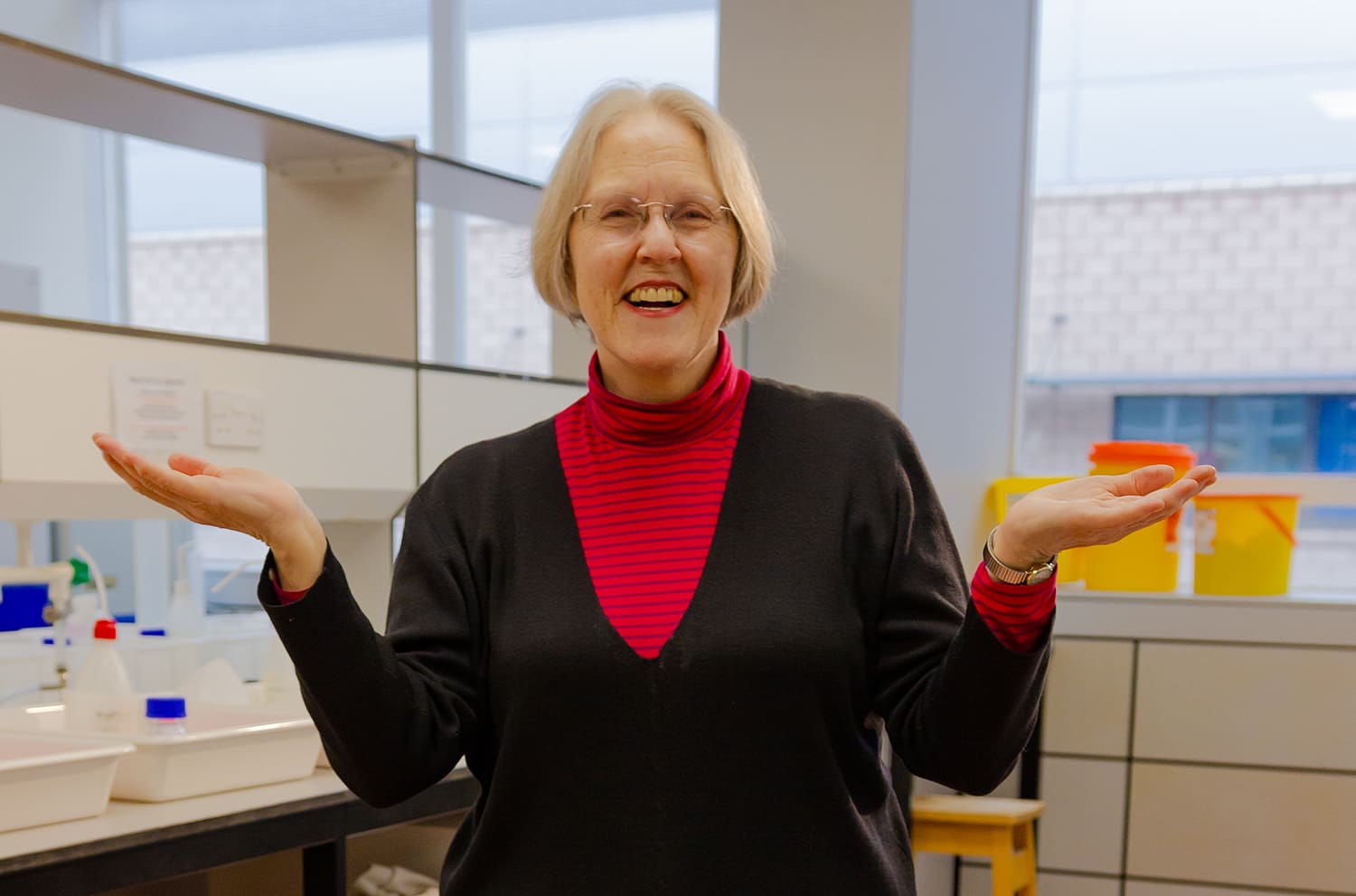
What does ‘balance’ mean to you?
I know that I have balance when I have sufficient time to think analytically and creatively about science and still have time to plan and take a holiday. I have balance when I do not have an albatross of obligations and deadlines hanging on my shoulders, when I have the energy to be enthusiastic in every lecture and tutorial, when I can listen to the sermon in church on Sunday instead of running through the tasks for the following week.
What do you do regularly to achieve balance?
When I had family at home, I achieved balance only through the strict division of work (8.30am to 6pm Monday to Friday, with only marking, reviewing and grant writing after 9pm) and family time. Now the edges are blurred, but I keep the balance through exercise, reading and volunteering to ensure good diversion of my time outside work – juggling again but with less pressure.
What are your hopes for better balance in the future?
I have had balance but I am retiring this year. A life without formal academic commitments will have a huge gap. I hope that I can find the intellectual stimulation that University life has given me for the last 50 years! My biggest hope, speaking as someone who started as the only woman in a unit with 15 men and who started in St Andrews 25 years ago when there were only 11 women in the whole Faculty of Science, is that gender balance in all scientific endeavour will be achieved in my lifetime. In more general terms for the whole of society, I hope for better sharing of domestic responsibilities as more men better recognise that home is as important as work.
My biggest hope is that gender balance in all scientific endeavour will be achieved in my lifetime.
Donald MacEwan
University Chaplain
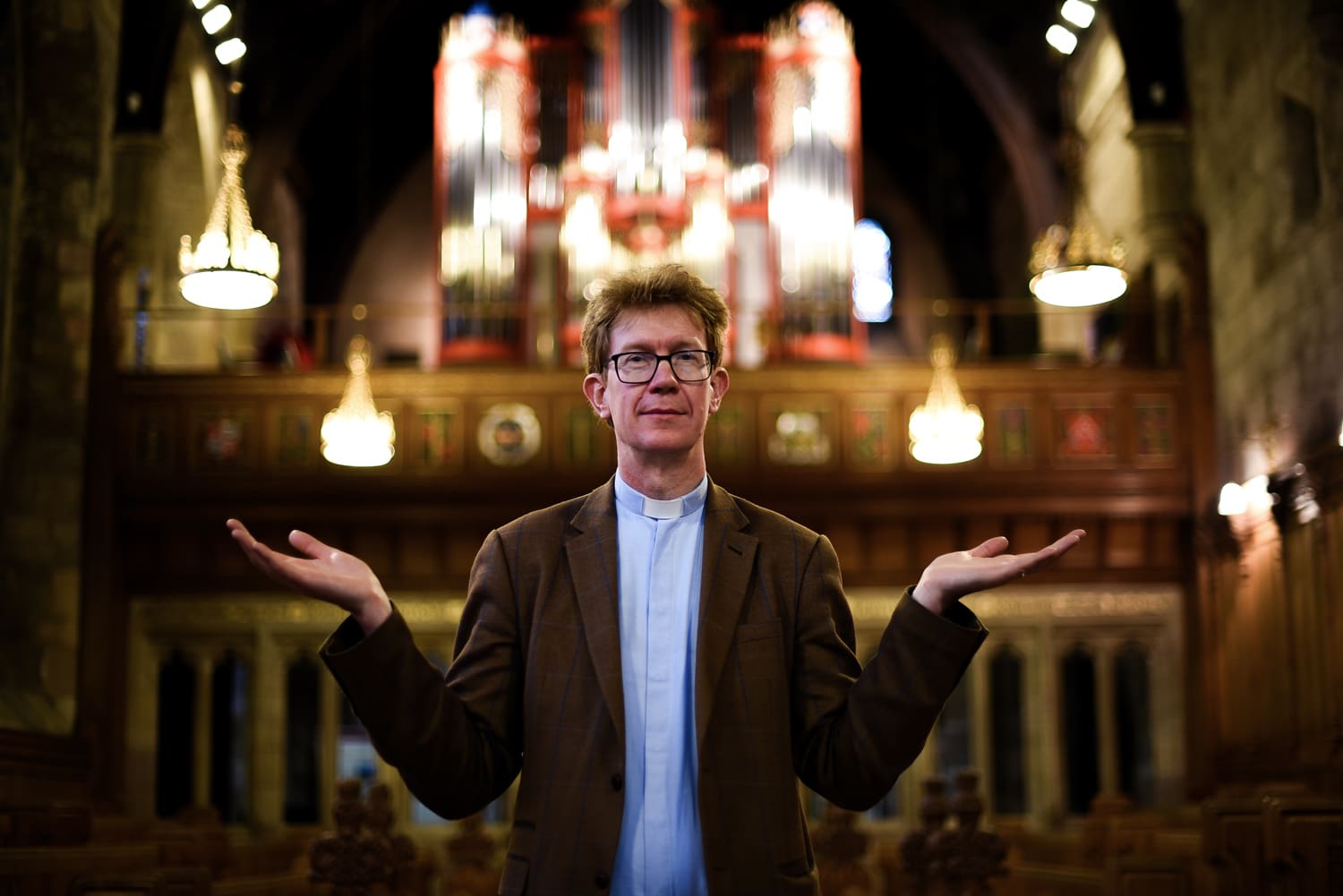
What does ‘balance’ mean to you?
That as a Chaplaincy we believe in the equal dignity of all people regardless of gender, that we serve people on that basis, and that we increasingly try to model that balance in our Chaplaincy team.
What do you do regularly to achieve balance?
By inviting preachers of different genders to speak in chapel services, by supporting musicians of different genders, by seeking to recruit members of the Chaplaincy team to enhance our balance, by encouraging faith societies to believe in gender balance.
What are your hopes for better balance in the future?
That barriers to participation disappear.
We believe in the equal dignity of all people regardless of gender.
Maggie Ellis
Lecturer, School of Psychology and Neuroscience
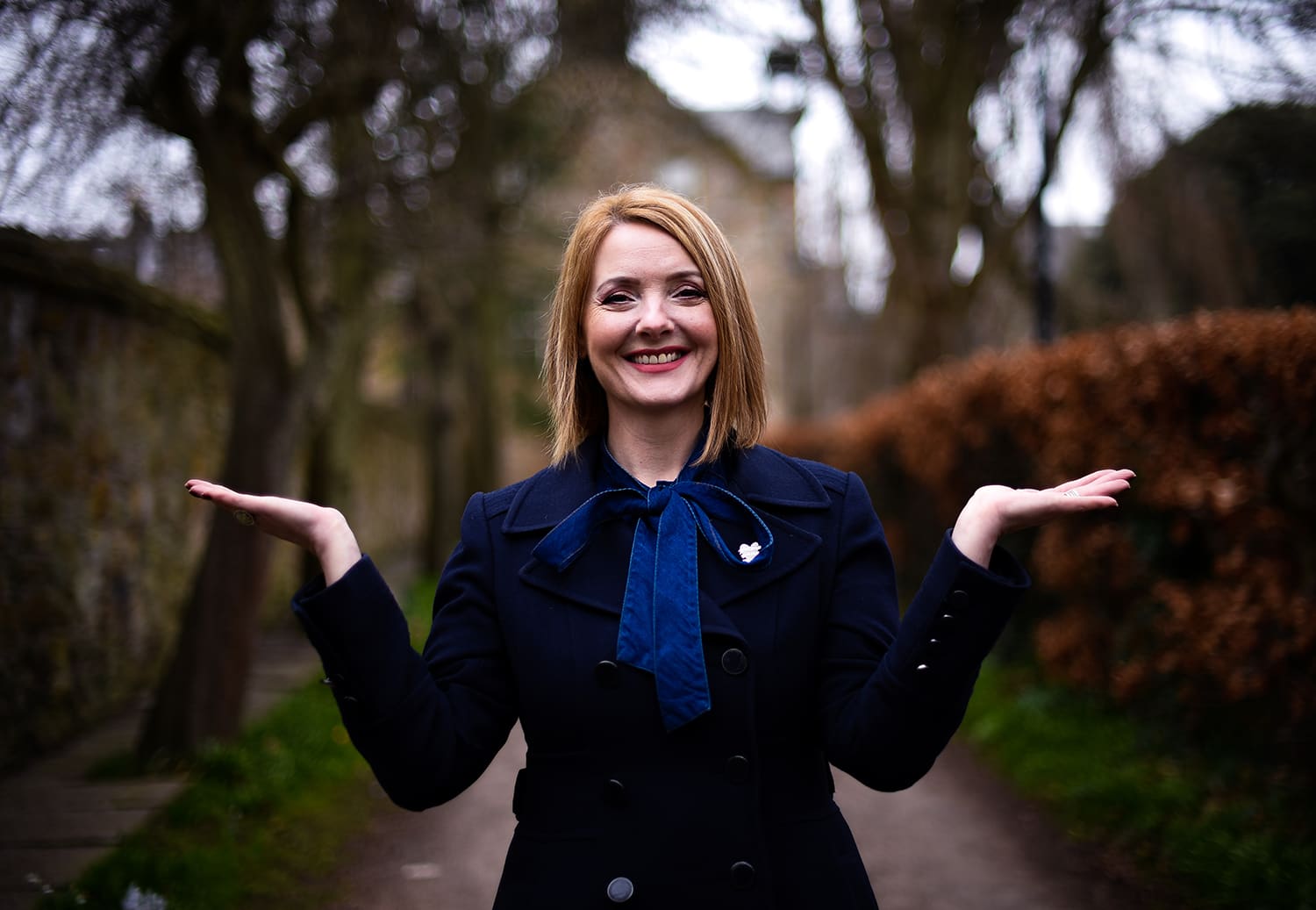
What does ‘balance’ mean to you?
‘Balance’ to me means finding a way to manage the demands of my working and personal lives. It’s important to know when to switch off and relax.
What do you do regularly to achieve balance?
I enjoy spending time with friends, family and pets – not necessarily in that order!
What are your hopes for better balance in the future?
I hope for there to be an increase in wellbeing programmes available to all staff in the workplace. Learning about stress management and self-care is key to maintaining balance in our lives.
Lenna Cumberbatch
Equality and Diversity Awards Adviser
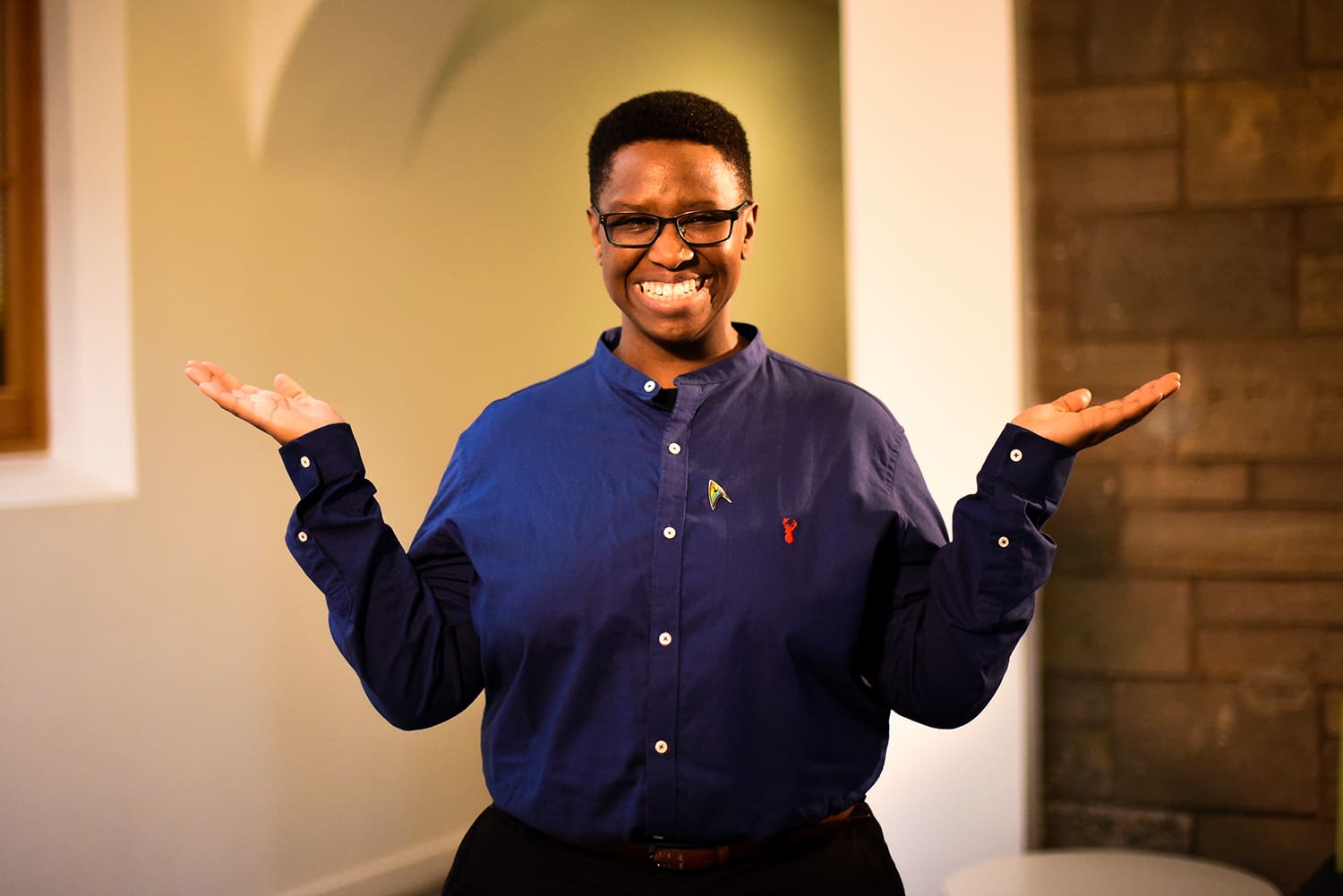
What does ‘balance’ mean to you?
In addition to being the right thing, balance is a good thing. We talk about balanced diets and balanced economies and living in balance with our environment and we know that it’s something that requires energy to accomplish but we also know how important it is to accomplish.
What do you do regularly to achieve balance?
I’m fortunate that improving balance is part of my job which means that something about which I am passionate is something I get to spend the majority of my day doing. It gives me the opportunity to continue to learn from those around me and share that knowledge with people wherever I go. I am also true to my convictions outside of the work environment. I do my best to live my life in a way that supports balance by valuing individuals for the contributions that they make and considering how and why I make decisions that will impact those around me.
What are your hopes for better balance in the future?
I don’t just hope for gender balance in the future, I hope and work for balance across the spectrum. By that I don’t mean a specific number, more an approach to how people are treated. I hope that we can get to a balanced place where we value each individual for their contribution.
I hope that we can get to a balanced place where we value each individual for their contribution.
Lenna Cumberbatch
Equality and Diversity Awards Adviser
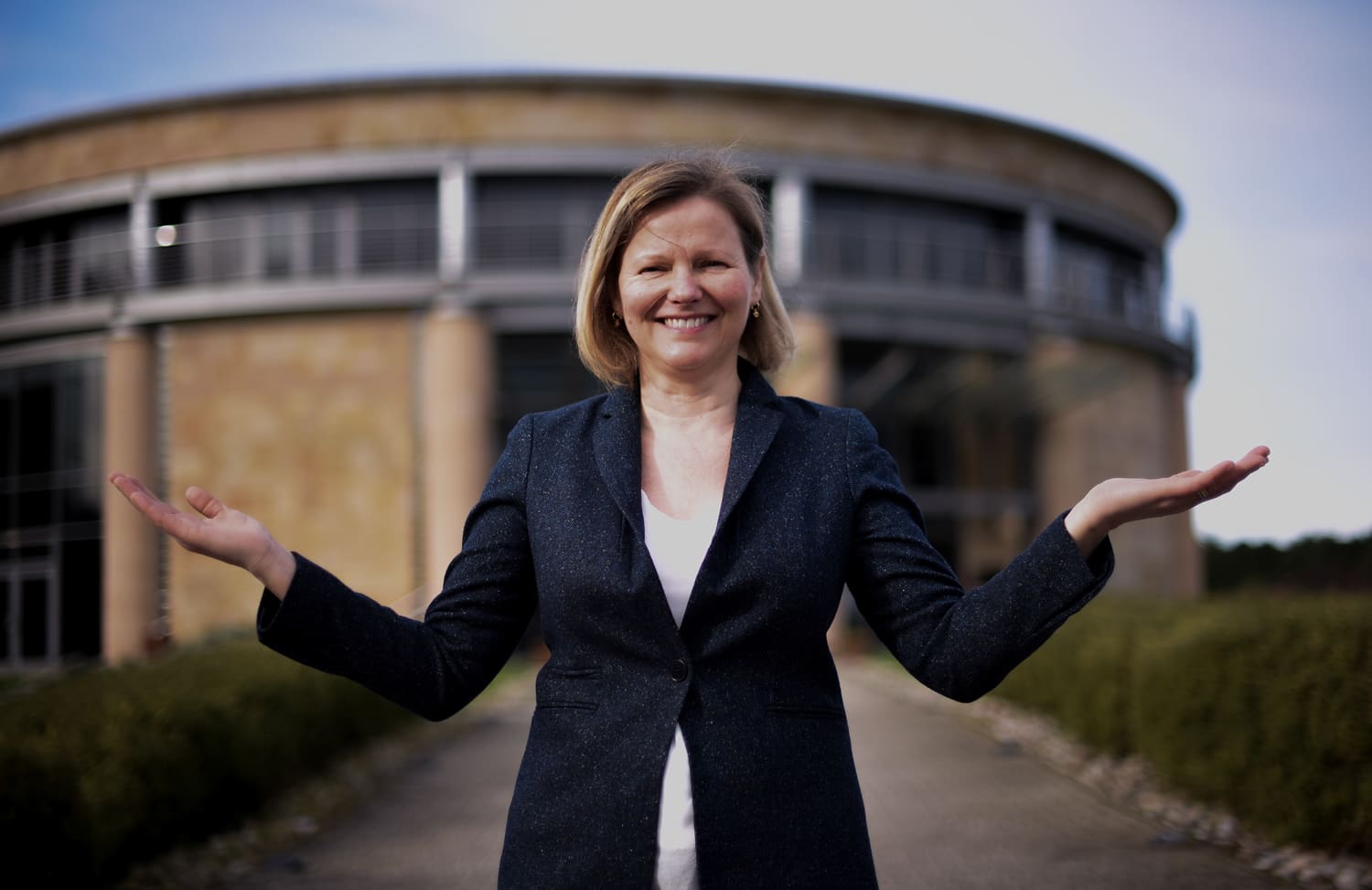
What does ‘balance’ mean to you?
For me, achieving more gender balance across all levels at work is common sense, otherwise understanding and decision-making is not as reliable or fair as it can be.
Balance for me personally means trying to get the right mix of activities in life so that I am doing the things I need to do to achieve the things I want to achieve, while doing my best to ensure I enjoy as much of this activity as I realistically can. Outside of work, keeping as fit and well as I can is important.
What do you do regularly to achieve balance?
The gender-balanced Head of School role that I share with my co-head, John Ferguson, is quite demanding, and so to achieve balance at work, I try to ensure that I spend some time each week focusing on activities that are fun and interesting. Touching base with those I work closely and well with, such as my co-head and Lynn Balfour, our School manager, often helps me keep perspective when it’s a ‘Windsday’ in the School of Management. I find laughter to be a good insulator and energiser.
Outside of work, I swim several times a week, walk the dogs every day with my husband, and enjoy talks with my teenage sons. We eat together every night and have family film nights at the weekend. I also listen to a lot of podcasts when I’m cooking!
What are your hopes for better balance in the future?
I would hope to see the continuation of progress to remove gender differences in workplaces so that people can make genuine choices about the level they feel they want to work at, the hours they want to work and when they might want to take a career break. At the moment too much of this decision-making is related to gender pay gaps, seniority gaps, and the impact of working part-time.
Achieving more gender balance across all levels at work is common-sense.
Silvia Paracchini
Royal Society University Research Fellow
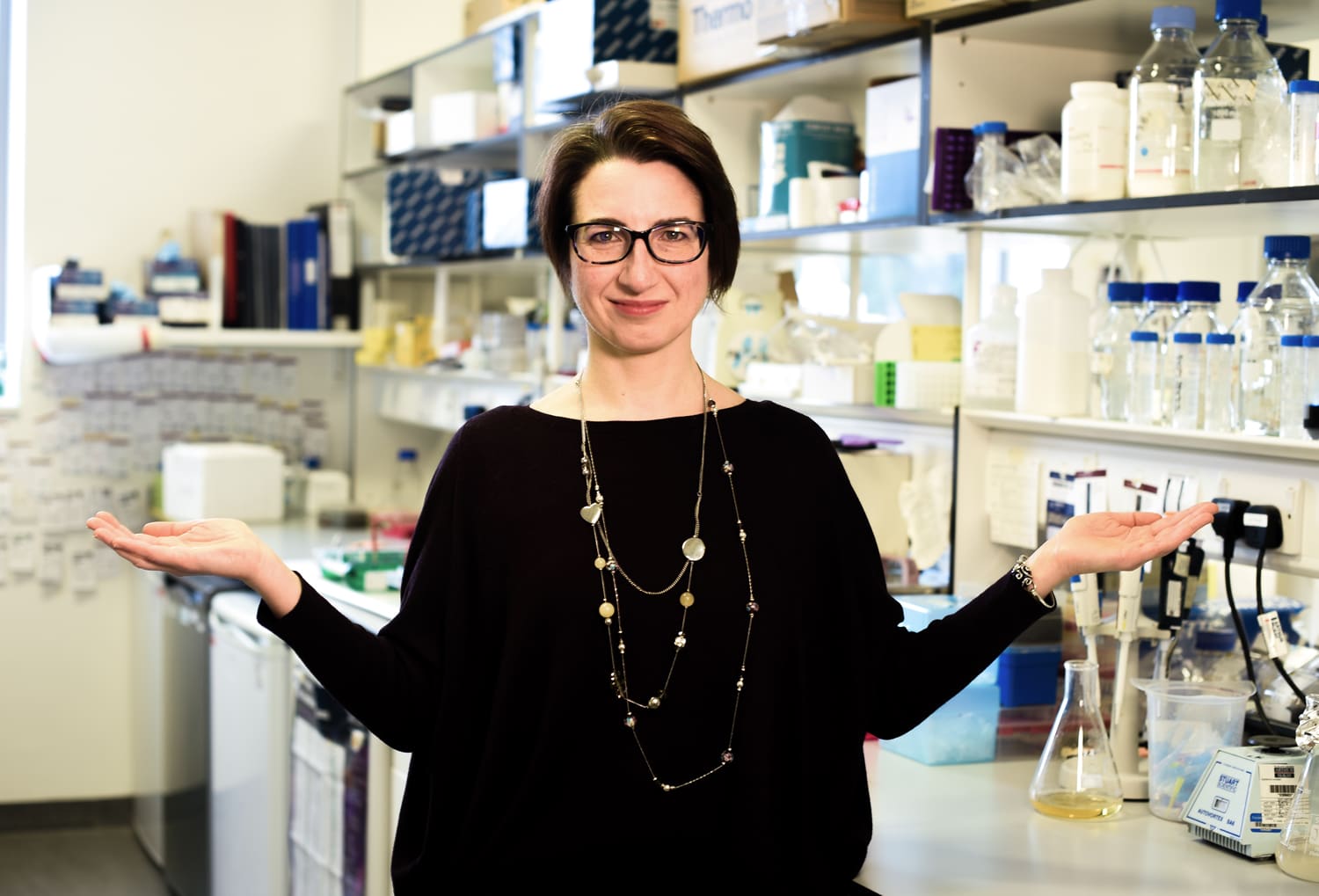
What does ‘balance’ mean to you?
To me, balance means that you do not feel imbalance, effortlessly. This is not so much about meeting targets and aligning to statistics, but it is rather striving for an environment where everybody can reach their full potential and feel recognised for their contribution.
What do you do regularly to achieve balance?
There are lots of ways we can contribute to a better environment as individuals. We do not need policies and committees to be a bit more attentive to our colleagues; sometimes just listening and being kind can make a big difference. A proven factor that contributes to imbalance is unconscious bias. We are all guilty of it. I try to be conscious of my own unconscious bias and bring awareness when I see it.
What are your hopes for better balance in the future?
I am hopeful. The fact we are talking about balance means that we have become aware of this issue and we are looking for solutions. We are not going to reach balance overnight, and although it is going to be a long journey we will gradually make progress.
However, we will need to re-address how to take action. There have been many studies and endless discussions on this topic showing the complexity of this phenomenon. A thorough analysis is presented in the recent RSE report Tapping all our Talents. The report highlights what has been achieved in the last five years since the theme of gender balance has gone up on the agenda, with initiatives such as the Athena SWAN Charter. Together with progress, a number of trends remain highly worrying, such as very little progress on reducing the gender pay gap.
The report discusses four themes where action is needed. We need better data to understand different phenomena contributing to the current picture and to inform policies. We need to ensure accountability is enforced to maintain confidence in the process. We need education and training at each step of the career ladder. Finally, it is crucial to see managers leading by example.
Sometimes just listening and being kind can make a big difference.
Sally Mapstone
Principal and Vice-Chancellor
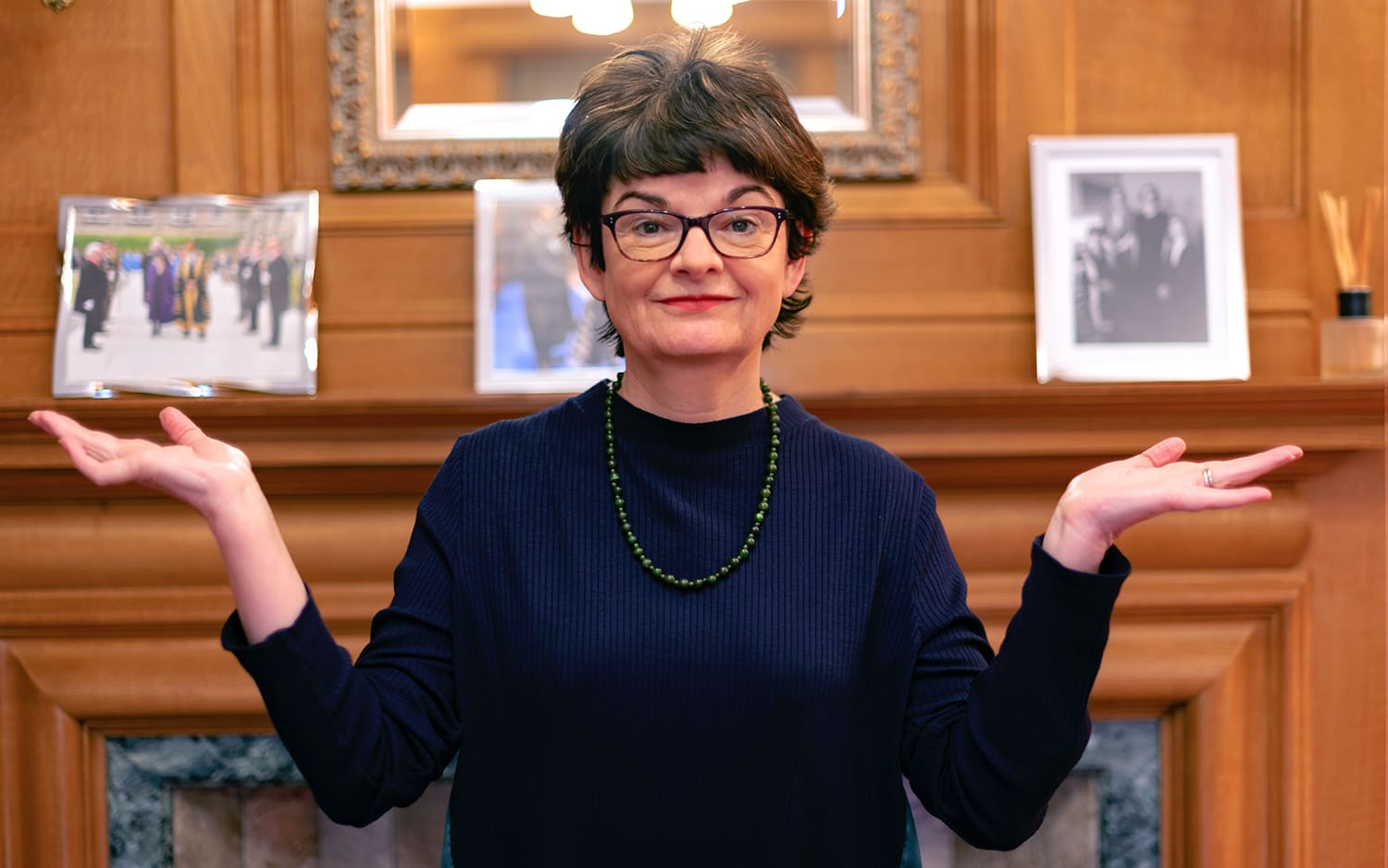
What does ‘balance’ mean to you?
A way of seeing that combines good judgement, compassion, and courage.
What do you do regularly to achieve balance?
Seek inspiration from the past, plan for the future, and make the most of the present.
What are your hopes for better balance in the future?
All those who identify as women, bringing positivity, creativity and change to our world, in a way that continues to rebalance prevailing political dynamics.
Aileen Fyfe
Professor, School of History
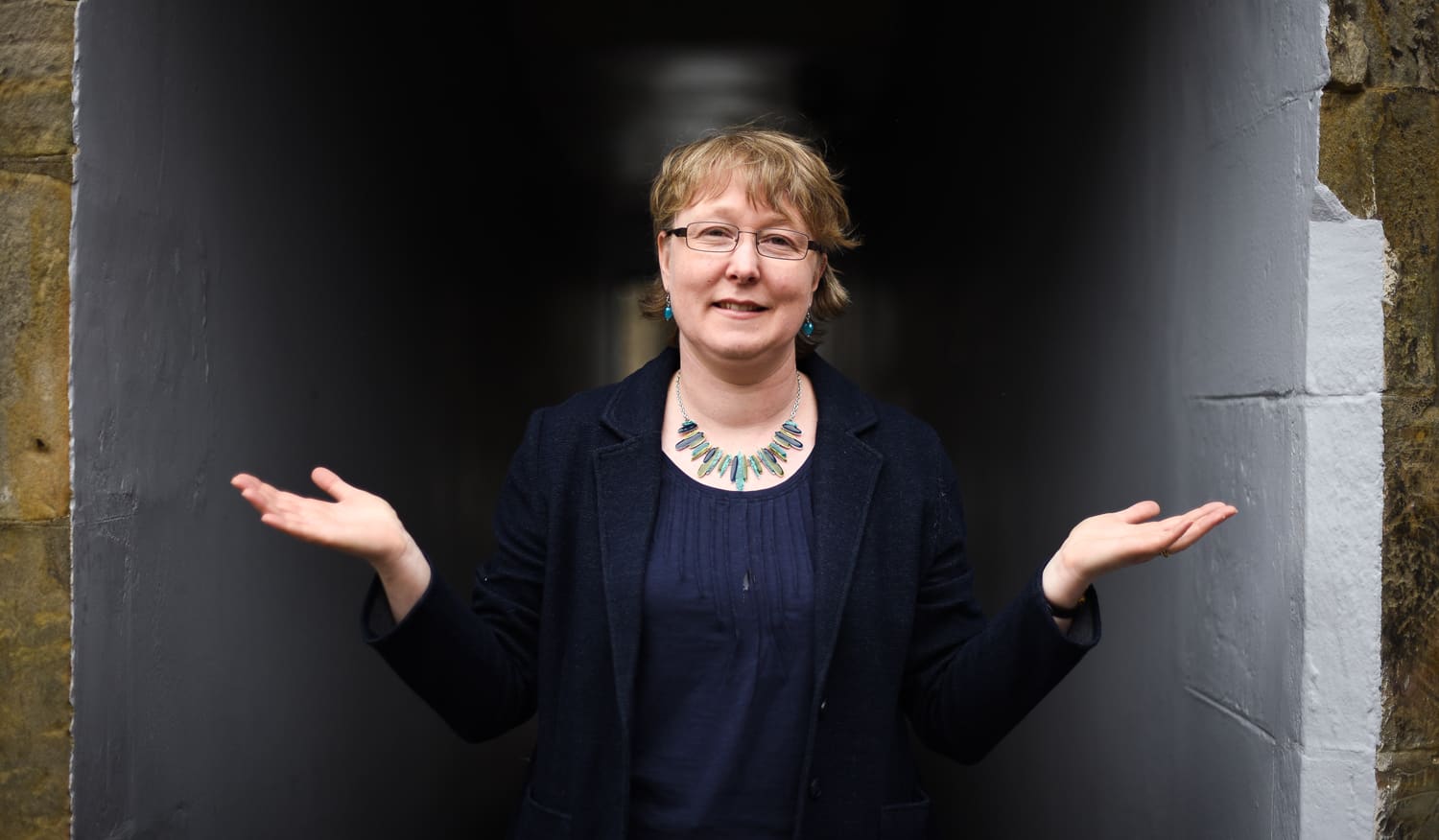
What does ‘balance’ mean to you?
That discussions are not dominated by one set of voices all sharing similar views.
What do you do regularly to achieve balance?
I try to call out colleagues who propose panels, workshops or speaker series where the participants are all male (or, indeed, all female, but that is very rare). It may be necessary to think a bit more creatively, or to look outside the usual networks, but I think it is worth doing.
What are your hopes for better balance in the future?
I’m not very often the only woman on administrative committees within the University; but within my particular academic discipline, at UK level, we are really short of senior women. I look forward to that changing.
It may be necessary to think a bit more creatively.
Cat Hobaiter
Lecturer, School of Psychology and Neuroscience
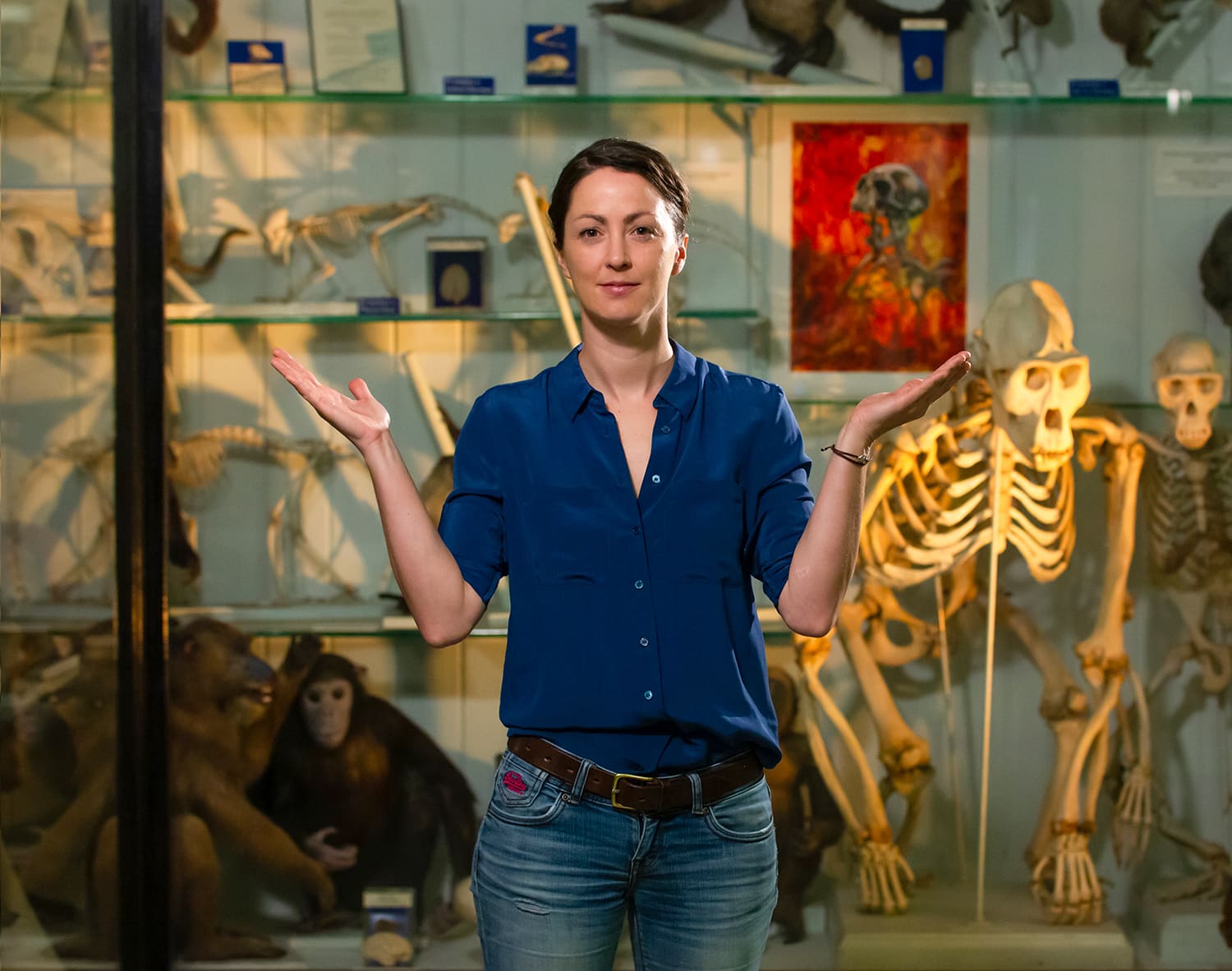
What does ‘balance’ mean to you?
Balance means lots of things to me. In my work on the evolution of behaviour, that means remembering that it’s not all about asking what human behaviours are shared with other animals, but about putting other animals – like chimpanzees – in the centre and asking what is interesting about their behaviour, whether or not we share it. In how I do my work, it means trying to explore the same question from different perspectives. We do better science with diverse data sets and diverse voices.
What do you do regularly to achieve balance?
I’m very lucky that I love what I do for ‘work’. Field primatology is often hard but even the hardest days can be incredibly rewarding. We all have things in and out of work that we don’t enjoy but have to do. Some advice I heard that works well for me is that rather than focusing on work-life balance, focus on love-hate balance – make sure that no matter how long the list of things you have to do is, you make time for the things you love doing, whatever ‘box’ they fit into.
What are your hopes for better balance in the future?
I’m really glad that we’re having more and more conversations about access to opportunities. When the system is out of balance, too often those it disadvantages don’t have access to the information they need about how it disadvantages them. Talking about it openly, sharing experiences and knowledge, gives us all more power to support each other within the current system and work actively to change it for the better.
Rather than focusing on work-life balance, focus on love-hate balance.
Paloma Paige
Students’ Association President
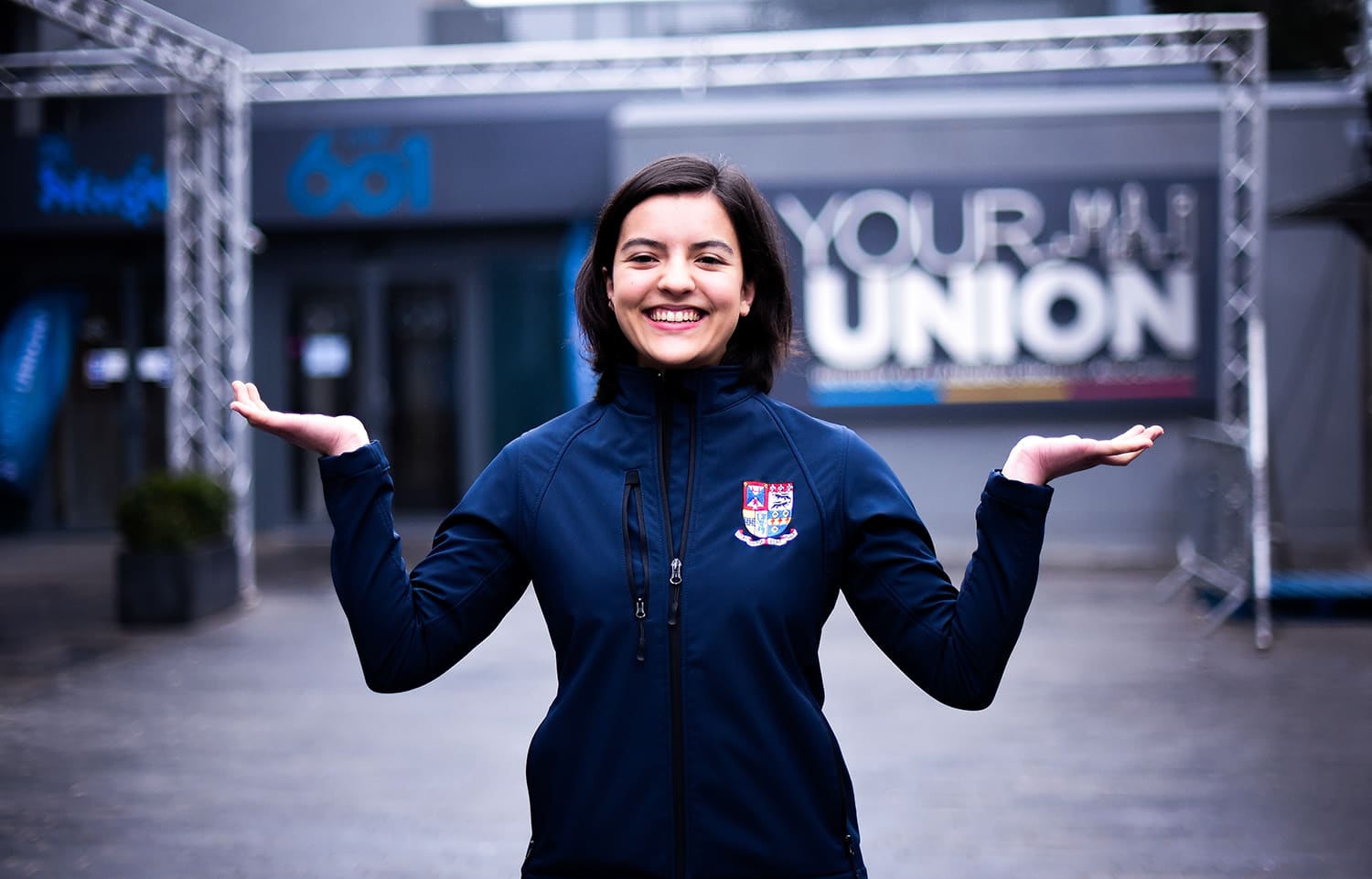
What does ‘balance’ mean to you?
Balance means truer reflections of our society and better collaborations.
What do you do regularly to achieve balance?
I make choices on a daily basis, and I try to ensure those choices reflect a fair assessment of the world around me.
What are your hopes for better balance in the future?
I hope we can achieve a level of balance such that there will be less an effort to create balance and more a natural effort to sustain it.
Balance means truer reflections of our society.
Alastair Merrill
Vice-Principal (Governance)
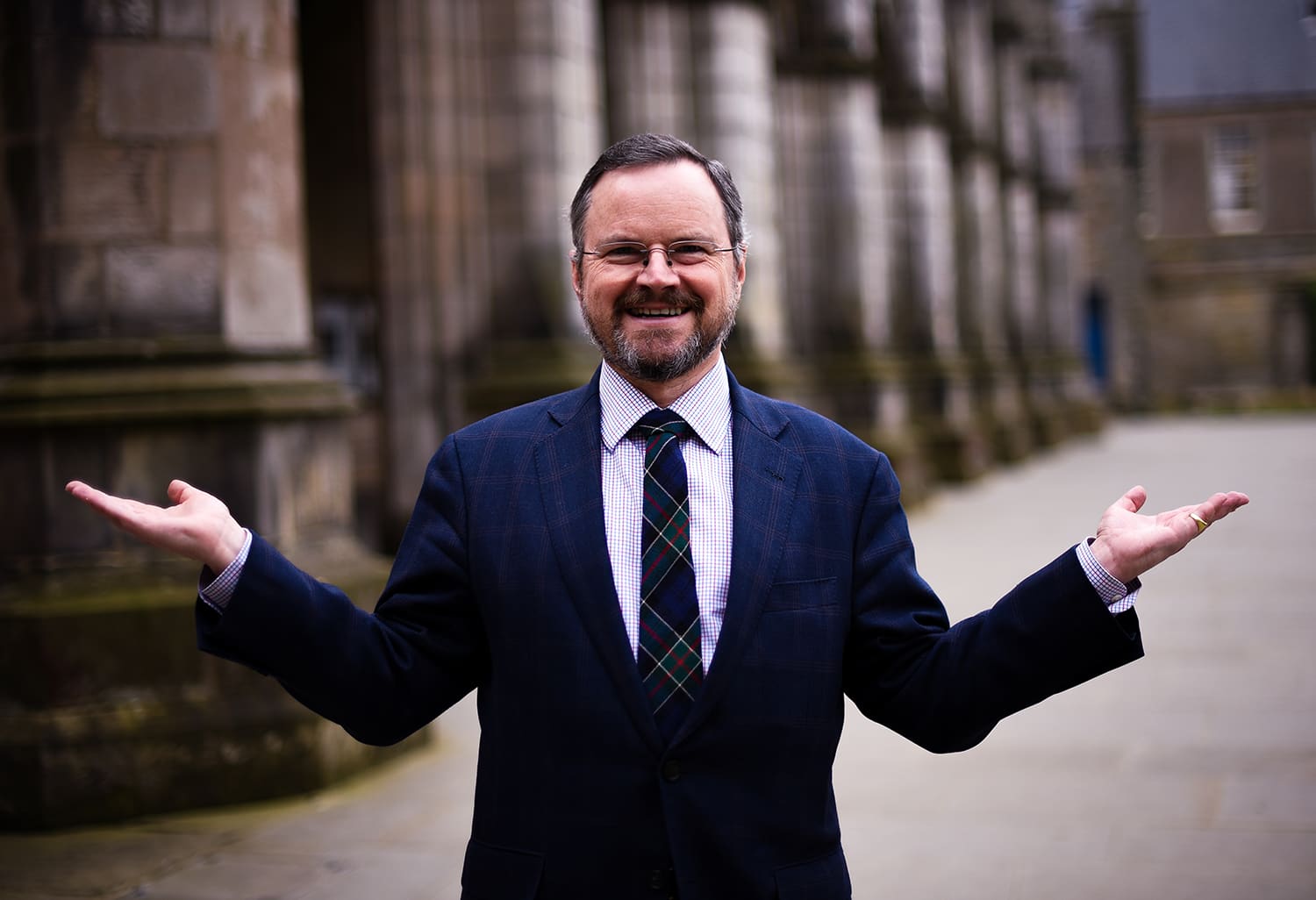
What does ‘balance’ mean to you?
Tolerance, equality and respect for difference.
What do you do regularly to achieve balance?
I look at issues from all different angles – I’m a great believer in the old phrase of walking a mile in another person’s shoes. I don’t jump to conclusions, but make sure I take time to reflect.
What are your hopes for better balance in the future?
That we see less prejudice, greater openness, and real ambition to change.
I’m a great believer in the old phrase of walking a mile in another person’s shoes.
Frances Andrews
Professor in Mediaeval History, School of History
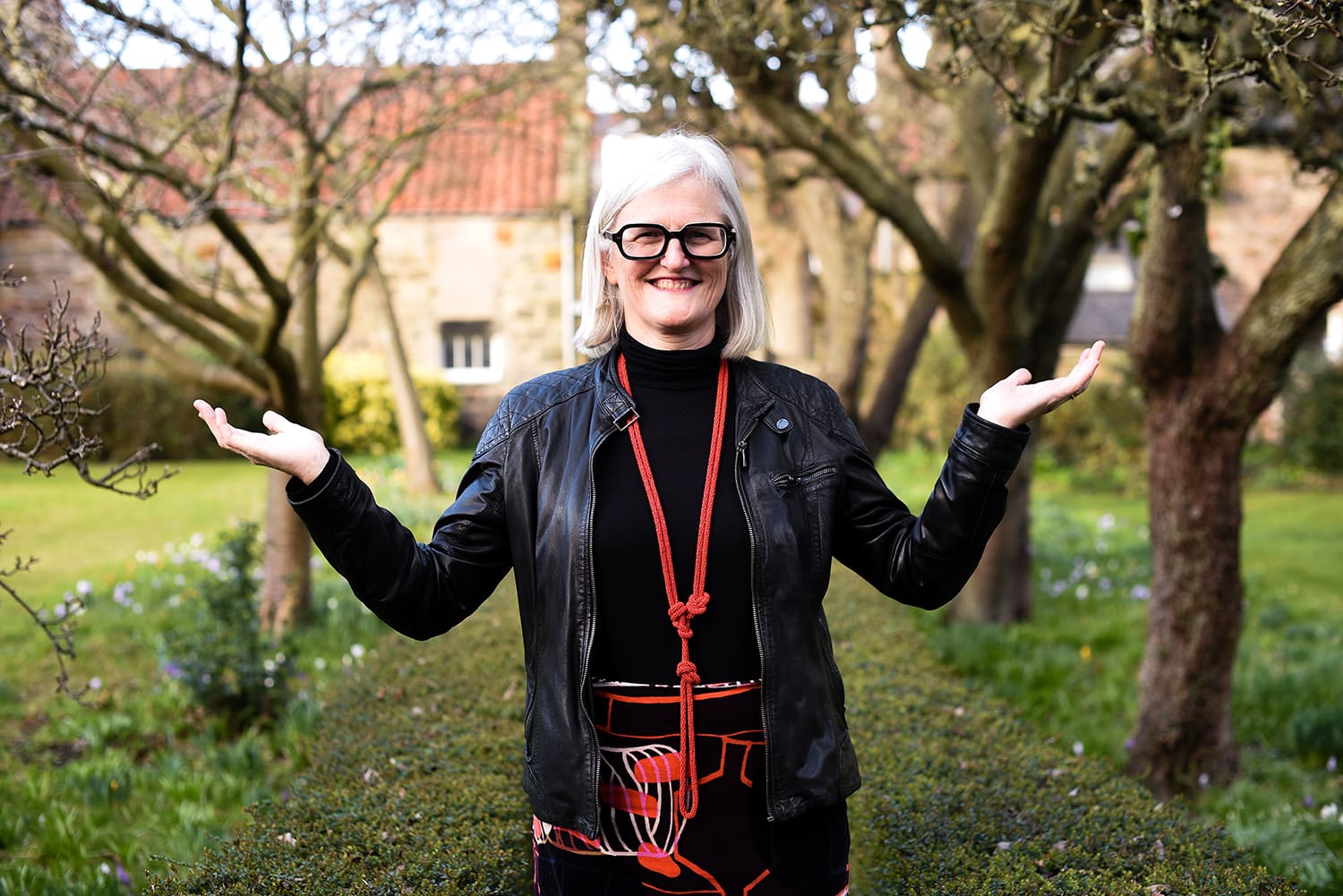
What does ‘balance’ mean to you?
Balance is equilibrium. Where there is imbalance there is inequality.
What do you do regularly to achieve balance?
I mentor colleagues and also try to make the Athena SWAN process meaningful.
What are your hopes for better balance in the future?
That in the near future, balance in the workplace, at home, in the playground, in government will be unremarked because unremarkable: that is to say there will be equality in pay, in opportunity, in leadership, in caring, in playing, in loving.
Balance is equilibrium.
Caron Gentry
Senior Lecturer, School of International Relations
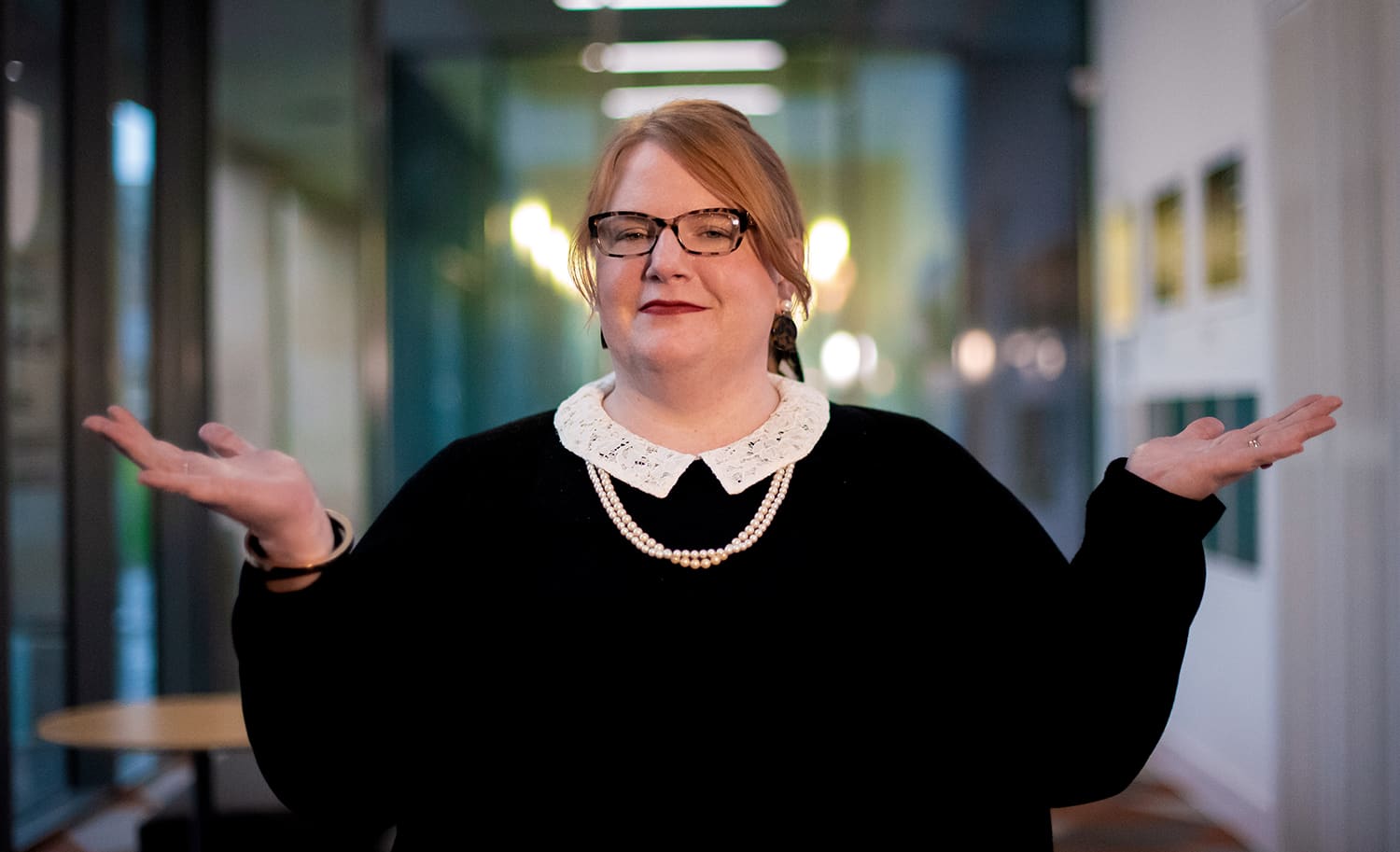
What does ‘balance’ mean to you?
In terms of equality, balance means representation of all people in positions of power as well as greater visibility of the challenges and issues that different people encounter.
What do you do regularly to achieve balance?
My teaching and research are directed at attempting to achieve greater balance and recognising how power has been used to harm women and people of colour. As the equality and diversity officer for the School of International Relations, my role is to implement changes that make the School work better for all people, leading to greater transparency and awareness for students and staff in the School.
What are your hopes for better balance in the future?
That all people know that they have a respected place in society.
Balance means representation of all people in positions of power.
Sukhi Bains
Head of Equality and Diversity
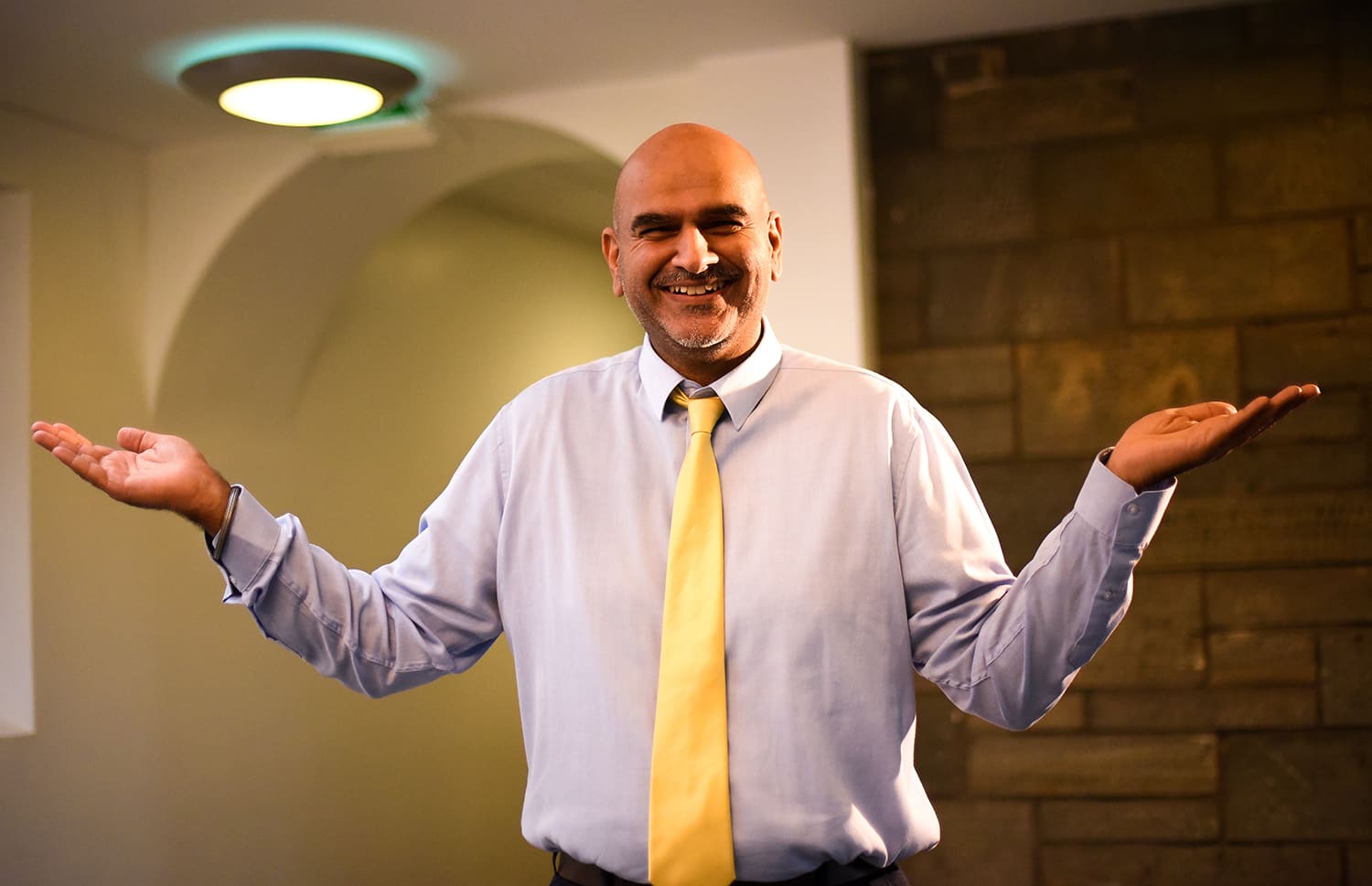
What does ‘balance’ mean to you?
Work-life balance in my career.
What do you do regularly to achieve balance?
Prioritise personal and professional life tasks.
What are your hopes for better balance in the future?
Influencing the national environment for a positive outlook on work-life balance.
Mhairi Stewart
Head of Public Engagement with Research
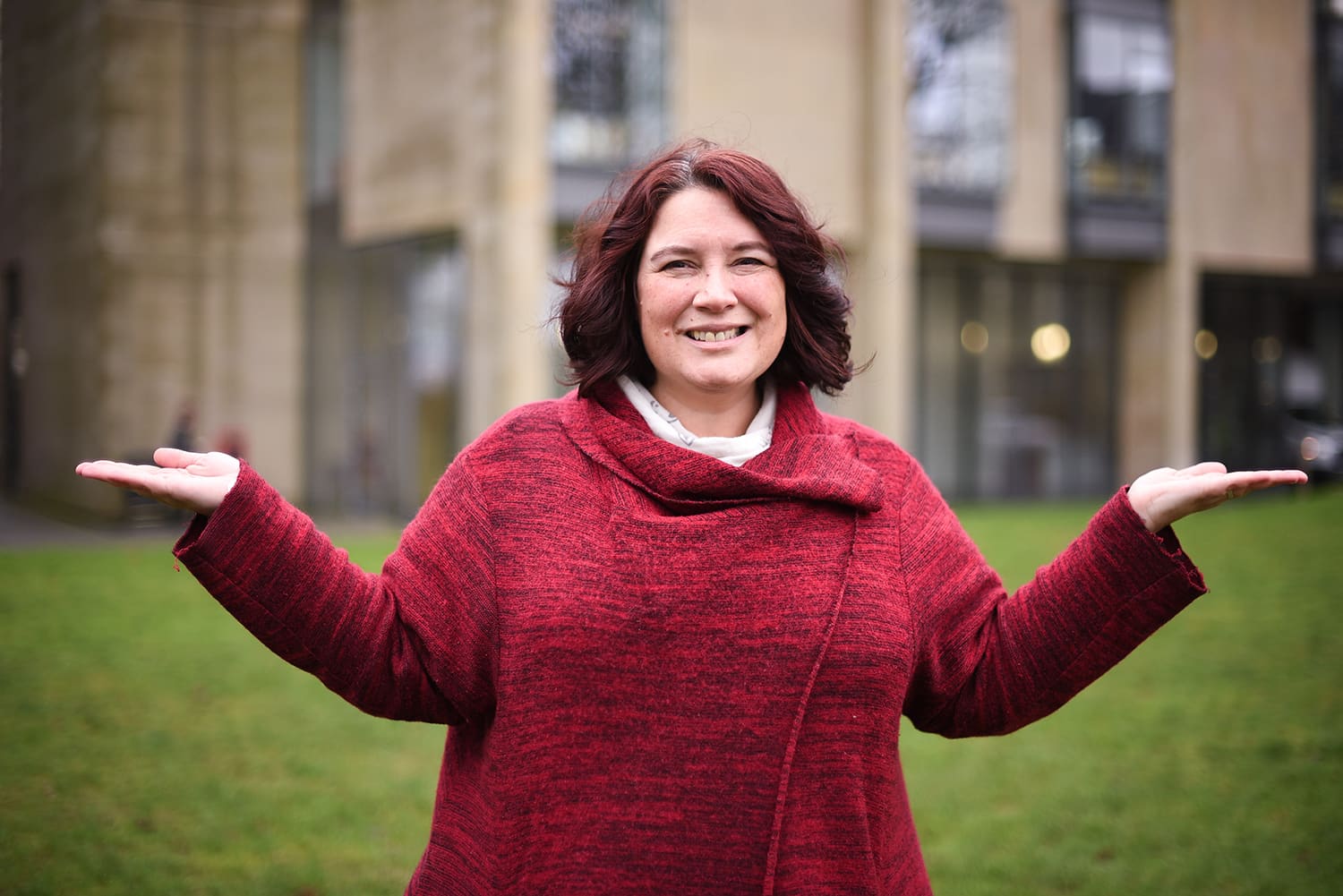
What does ‘balance’ mean to you?
Balance for me means seeing all things in perspective, with equity in terms of support and recognition.
What do you do regularly to achieve balance?
Personally I need to step back and take an all-encompassing perspective of all my activities, making sure I can identify imbalance in order to find ways to correct it.
What are your hopes for better balance in the future?
There is more awareness of the advantages of balance and how we achieve it, so I’m very optimistic for the future.
Balance for me means seeing all things in perspective.
Claire Cousins
Royal Society Research Fellow, St Andrews Centre for Exoplanet Science, School of Earth and Environmental Sciences
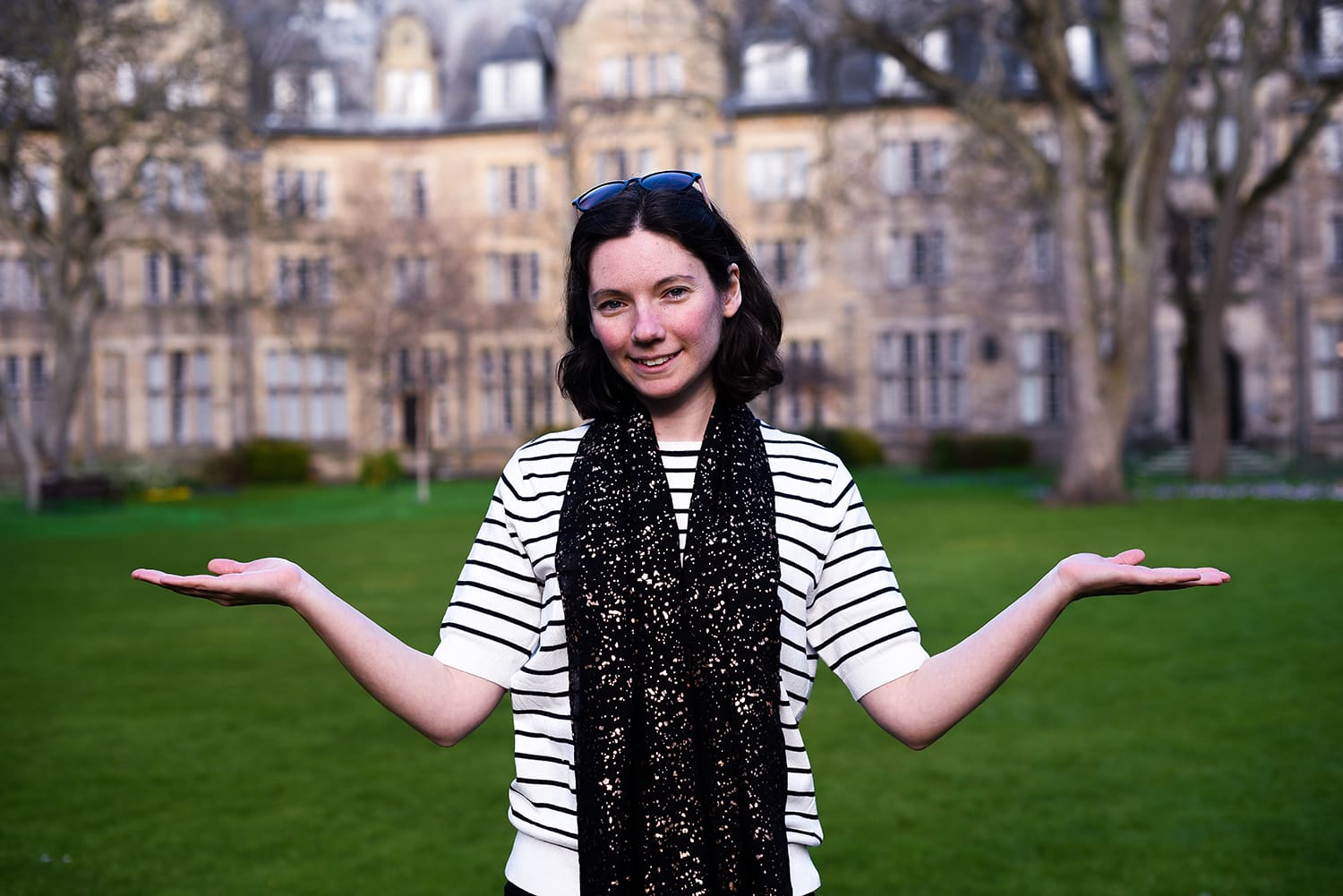
What does ‘balance’ mean to you?
To me balance encapsulates fairness and diversity.
What do you do regularly to achieve balance?
Trying to just see people for who they are as individuals and avoid the inherent unconscious biases we pick up throughout our lives.
What are your hopes for better balance in the future?
That one day it won’t even matter or need addressing.
Alison Kerr
Director, St Andrews Institute for Gender Studies (StAIGS)
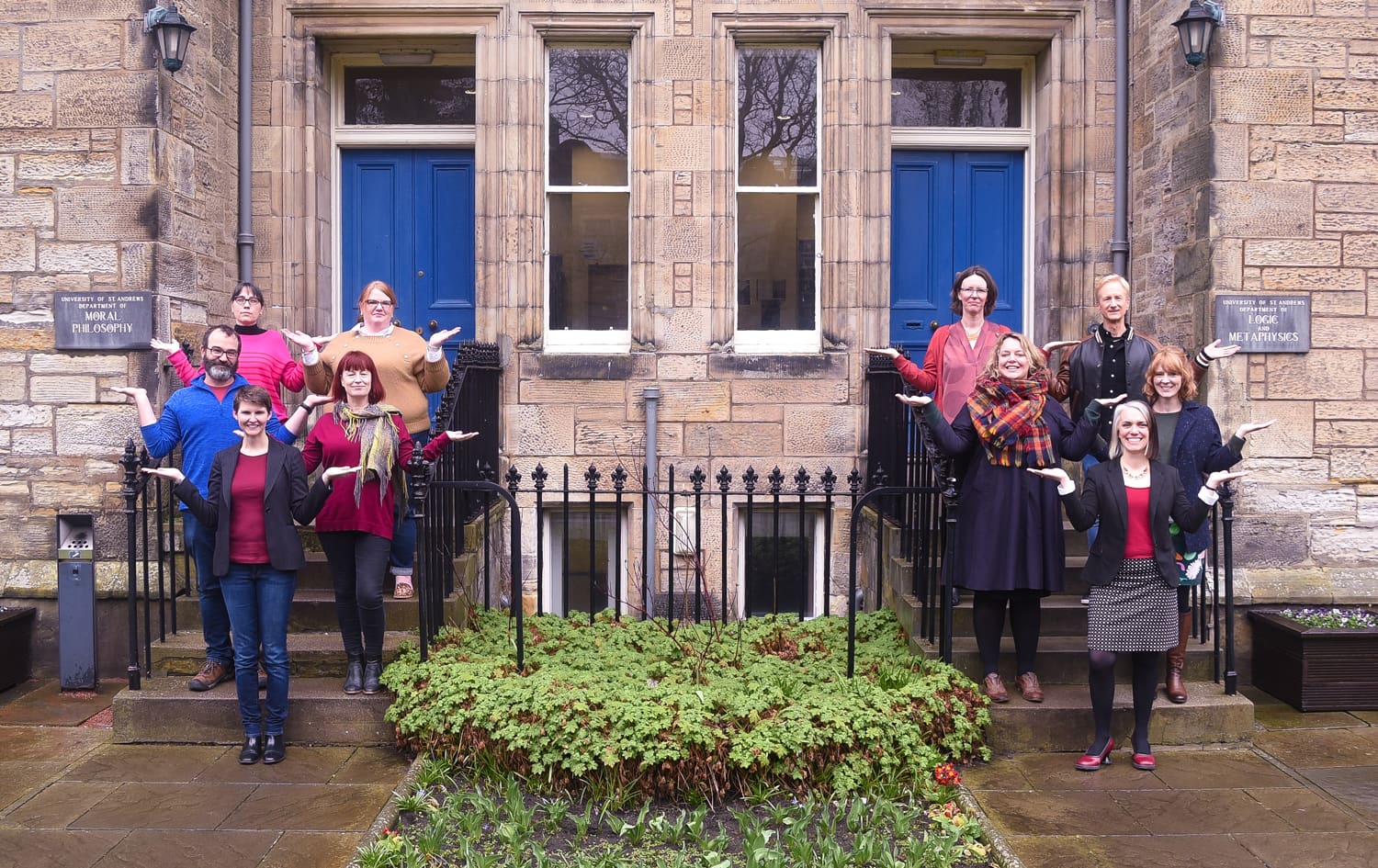
Alison Kerr (front right) is pictured with her StAIGS colleagues. They are (left side) back: Isabel Segui, Caron Gentry, middle: Kevin Scharp, Lisa Jones, front: Christa McKirland and (right side) back: Katherine Hawley, Bruce Benson, middle: Madhavi Nevader and Hannah Craven
What does ‘balance’ mean to you?
I think balance is a people issue – it’s about fairness. And, in the long run, balance is better for all people.
What do you do regularly to achieve balance?
As director of the St Andrews Institute for Gender Studies (StAIGS) I focus on achieving far more gender balance through bringing together scholars from across the University for collaborative conversations on intersectional accounts of gender.
What are your hopes for better balance in the future?
I like to imagine a future where conversations about balance need not be had because such an ideal has already been obtained.
Pam Edie
Estates cleaner (CREEM)
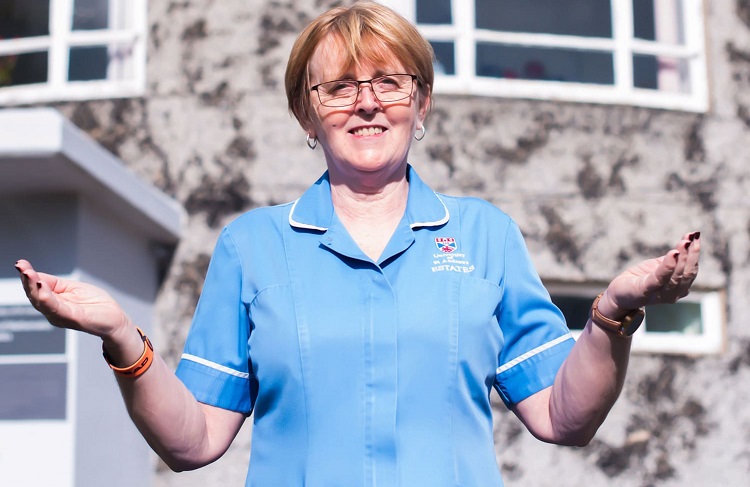
What does ‘balance’ mean to you?
In all aspects of life it’s important to see both sides.
What do you do regularly to achieve balance?
As I only work part-time this gives me the opportunity to not only enjoy my working environment, but also affords me more time with my family and friends.
What are your hopes for better balance in the future?
That men and women will find it easier to mix both work and family life without compromising one or the other.
Credits
Images by Gayle McIntyre and Ed Broughton, Corporate Communications. Graphics and design by Lewis Wake, digital communications team.
Thanks
Thanks to all participants for their time and enthusiasm for this year’s campaign.
Take part
Would you like to nominate yourself or a colleague to take part in this year’s campaign? Send an email to [email protected] with your interest.
Contact
Email: [email protected]
Phone: +44 (0)1334 46 7323